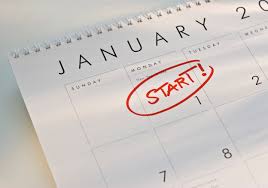New Year’s Resolutions
“New Year, New Me!”

January 17, 2019
A New Year brings in endless possibilities of self-improvement through its idea of a “fresh start.” January 1st rings in plentiful cries of “New Year, New Me” as people from all over the world make New Year’s Resolutions in the hope of making positive change.
The origins of New Year’s Resolutions can be traced back to the Babylonians, who made promises and sacrifices to their gods at the beginning of every year. Also, Romans made promises to the god Janus, the namesake for the month of January.
Early Christians used the New Year to reflect on their past mistakes and sins in an effort to improve in the future. Even today, many Christians practice prayer and religious reflection amidst the countdown to the New Year.
Historically speaking, New Year’s Resolutions and celebrations find their roots in religious practices. However, in more recent years, the celebration of New Year’s and the practices that go along with it have become a more individualized thing. For example, most people now make promises to themselves as opposed to their gods. This is the traditional understanding of a modern New Year’s Resolution.
Some of the most common Resolutions include going to the gym, eating healthier, quitting smoking, or learning a new hobby. All these are great Resolutions, but most people rarely follow through with them. Studies have shown that out of the 45% of Americans who make Resolutions, only 8% of them actually reach their goals. However, people will continue to make Resolutions every year-whether they are successful or not.


